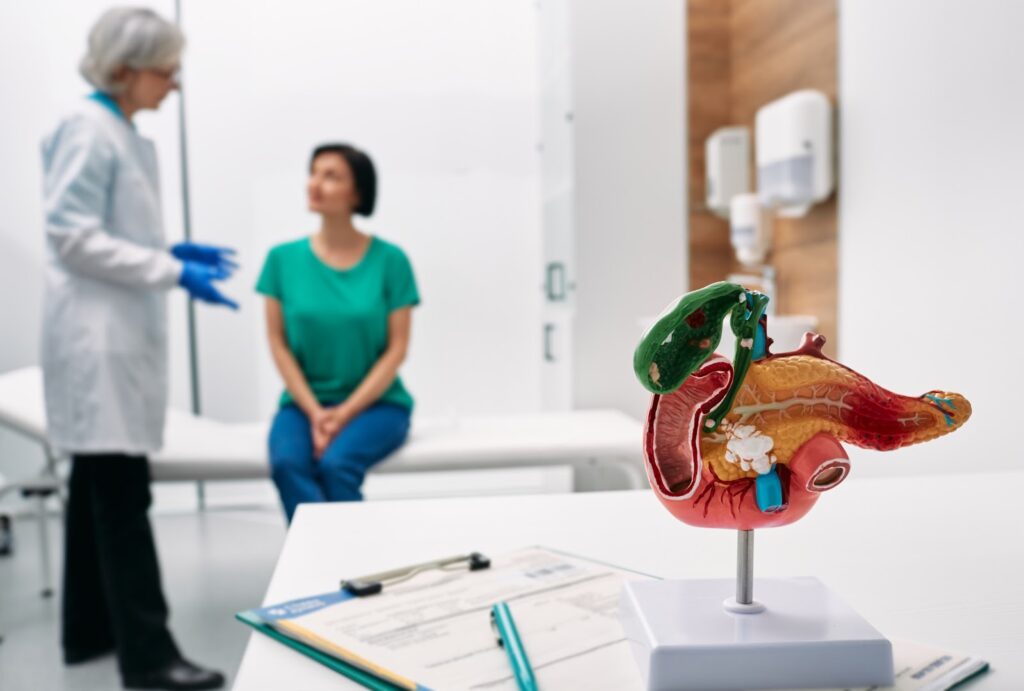Swallowing the Truth: The Facts on Esophageal Cancer
Though it only makes up approximately one percent of all cancers diagnosed within the United States*, the American Cancer Society® estimates that in 2016:
- About 15,690 esophageal cancer deaths will occur (12,720 in men and 2,970 in women)
- About 16,910 new cases of esophageal cancer will be diagnosed (13,460 in men and 3,450 in women)
In comparison, esophageal cancer is significantly more common in other parts of the world, such as Iran, northern China, India and southern Africa.
No matter where you are, April is Esophageal Cancer Awareness Month, a time at which periwinkle becomes a symbolic color to raise awareness, foster prevention and promote early detection, which are key to combatting this terrible and deadly disease. In fact, if caught early enough, approximately 20 percent of patients survive at least five years after diagnosis.
What is Esophageal Cancer?
Esophageal cancer is cancer of the esophagus, a long tube running from the throat to the stomach that carries food into the stomach for digestion. The cancer typically develops in the cells lining the esophagus (though it can occur anywhere within the esophagus) and appears more toward the bottom portion of the tube in Americans.
Are There Different Types of Esophageal Cancer?
Yes. Esophageal cancer is classified according to the cells that make up the disease. There may be different treatment options depending on the type of cancer an individual has. The two basic types include:
Adenocarcinoma. The most common form of esophageal cancer in the U.S., adenocarcinoma begins its life in the mucus-secreting glandular cells of the esophagus. There are several risks for developing this type of esophageal cancer, including:
- Barrett’s esophagus, a change in the tissue lining the esophagus
- Gastroesophageal reflux disease (GERD)
- Diets low in fruits and vegetables
- Obesity
Squamous cell carcinoma (SCC). SCC occurs most frequently in the middle of the esophagus. It is generally associated with alcohol consumption, smoking and difficulty with swallowing due to the lower esophageal sphincter not relaxing (achalasia).
In rare cases, other types of esophageal cancer may occur, such as:
- Choriocarcinoma
- Lymphoma
- Melanoma
- Sarcoma
- Small cell cancer
What Are the Causes of Esophageal Cancer?
While the exact cause of esophageal cancer is unclear, there is a line of thinking that suggests that chronic irritation of the esophagus may add to the DNA changes that result in esophageal cancer.
How is Esophageal Cancer Diagnosed?
The gastroenterologists of Digestive Healthcare Center (DHC) are experienced in effectively diagnosing all types of esophageal cancer using the latest tools and techniques available. If esophageal cancer is suspected, tests and procedures performed include an upper endoscopy (EGD) or an EGD with a biopsy to confirm a diagnosis.
During an EGD, a thin, flexible tube with a camera at the tip is passed down through the mouth and into the esophagus. The camera feeds to a video display where the physician may look for any changes or irritation. Tissues samples can also be biopsied (removed) with special tools during the procedure, and the samples sent out for analysis. If a diagnosis of esophageal is confirmed by DHC experts, patients are then referred out to an oncologist to discuss and carry out treatment options for the condition.
Thankfully, treatments and survival rates for this condition have greatly improved over the years, but only because of the awareness and subsequent funding for research that has been brought about through Esophageal Awareness Month.
Don’t wait until it’s too late. For more information on esophageal cancer or to schedule an appointment with a specialized gastroenterologist, contact DHC today.
*Statistics provided by the American Cancer Society
Make an Appointment for Comprehensive Digestive Care in NJ
At Digestive Healthcare Center, we want each patient at our three offices in New Jersey to feel confident about their digestive health. We encourage you to contact us today to make an appointment with one of our expert gastroenterologists – don’t wait to start putting your digestive health first!
Recent Blogs
Learn more about all things digestive health and wellness by checking out our recent gastroenterology blogs.

Diverticular disease and diverticulitis are related digestive health conditions that affect the large intestine (colon). With diverticular disease, small, bulging pockets develop on the lining of the colon. When these pockets become inflamed or infected, the condition is called diverticulitis. They are very common – especially after age 40 – and rarely cause problems. At […]

Many Americans like to set New Year’s resolutions to make positive lifestyle changes such as improving their diet and going to the gym. However, March is also a great time for a healthy focus, especially as the long winter season comes to an end. National Nutrition Month, sponsored by the Academy of Nutrition and Dietetics, […]

Gallstones form when bile stored in the gallbladder hardens. Your gallbladder is a small, pear-shaped organ on the right side of your abdomen, just beneath your liver. It holds a digestive fluid called bile that’s released into your small intestine. Gallstones are pebble-like pieces of concentrated bile material, typically made up of cholesterol or bilirubin […]

























